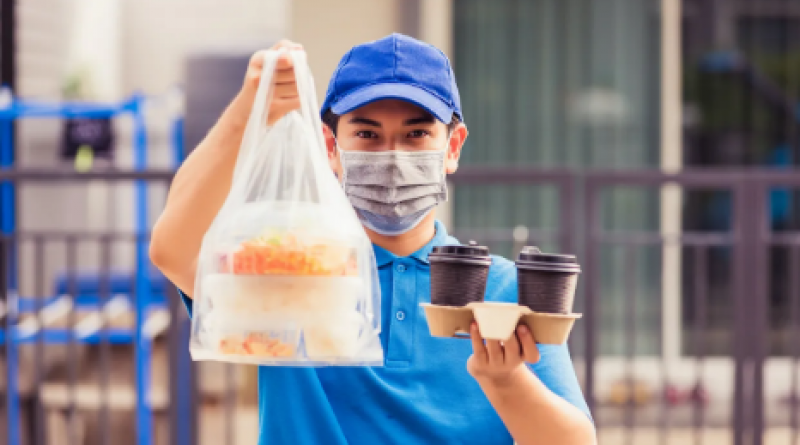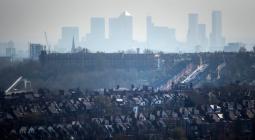How Air Pollution, Food Delivery and Plastic Waste Are Connected.

Researchers from the National University of Singapore (NUS) have discovered a link between air pollution, food delivery and plastic waste.
In a study published in Nature Human Behavior, the researchers found that the more polluted air outside is, the more likely office employees are to use food delivery services. This, in turn, increases the waste produced from single-use food packaging and bags.
"While we see more research on the impact plastic pollution is having on the natural environment, there has been less work trying to understand the human behaviour that drives plastic pollution," Alberto Salvo, one of the study's authors, said in an NUS news release. "This is where our study seeks to contribute – finding a strong causal link between air pollution and plastic waste through the demand for food delivery."
The study surveyed the lunch choices of 251 office workers for 11 workdays each in three Chinese cities known for having levels of smog – Beijing, Shenyang and Shijiazhuang, the release explained. They also looked at data from an online food delivery platform with over 350,000 users. By comparing both datasets with air pollution data during the lunch hour, NUS researchers found that employees were 43% more likely to order food delivery when there was a 100 μg m–3 increase in particulate matter pollution (PM2.5), International Business Times (IBT) reported. By contrast, the general public was 7.2% more likely to use food delivery services with the same increase in air pollution.
PM is the most common indicator for air pollution, and includes nitrates, ammonia, sulfate, mineral dust and black carbon, the news report explained. According to the World Health Organization (WHO), PM affects more people than any other pollutant, and PM2.5, or fine particulate matter less than 2.5 micrometers in diameter, can penetrate the lung barrier and enter the blood system. Chronic exposure to particles contributes to the development of cardiovascular and respiratory diseases and lung cancer, the WHO said.
During the lunchtime periods surveyed by NUS researchers, PM2.5 levels were often well above the 24-hour U.S. National Ambient Air Quality Standard of 35 μg/m³, making pollution highly visible, the NUS release said.
"Faced with smog or haze outside, a typical office worker at lunchtime can avoid exposure only by ordering food to be delivered to his or her doorstep," said NUS researcher Chu Junhong in the NUS release.
Chu also explained in the release why air pollution seemed to have a smaller impact on food delivery in the general public than in workers, because people try to avoid the outdoors on a polluted day by using a home kitchen or eating at a cafeteria within their office building.
In a second part of the study, office workers submitted photos of their lunches, which researchers used to quantify the amount of disposable plastic in different dining choices, explained an NUS Business School video.
Not surprisingly, researchers found that delivered meals used more plastic than meals eaten in restaurants. The average delivered meal used an average of 2.8 single-use plastic items or an estimated 54 grams of plastic, the video explained. By comparison, the average restaurant meal used an average of 6.6 grams of plastic, usually in the form of chopstick sleeves or bottles.
COVID-19 has exacerbated the problem by increasing the demand for delivered meals, which are usually packaged in plastic, the video explained.
According to the research, if all of China were exposed to a 100 μg/m³ PM2.5 increase in air pollution, the same as Beijing regularly experiences, 2.5 million more meals would be delivered daily, creating a total of five million more plastic food containers and plastic bags, reported Science Times.
NUS Researcher Liu Haoming said, "Individuals protect themselves from – and show their distaste for – air pollution by ordering food delivery which often comes in plastic packaging," in the NUS release.
IBT concluded that the study shows how people inadvertently contribute to the increasing plastic waste issues because they are trying to avoid air pollution. Liu added in the NUS release that the study makes it evident that "air pollution control can reduce plastic waste."
The findings could apply to other polluted developing nation-cities, such as Bangladesh, India, Indonesia and Vietnam, he said in the release.
25 October 2020
EcoWatch




